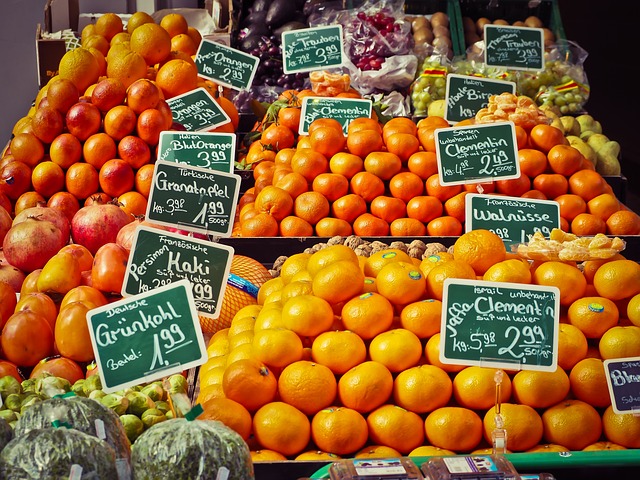Proper yard waste removal and recycling practices are vital for sustainable living and environmental health. Differentiating organic materials like grass clippings, leaves, and trimmings from household garbage reduces landfill waste, cuts methane gas emissions, and fosters a vibrant ecosystem. Home composting educates individuals about sustainable habits, minimizes trash sent to landfills, and provides nutrient-rich compost for gardening. Recycling, with an understanding of local guidelines, involves sorting and separating recyclables to prevent contamination, reducing the demand for new resources and minimizing landfill waste. Local communities promote these practices through educational programs, workshops, community composting sites, and campaigns, empowering residents to make sustainable choices daily and contribute to a greener future.
In today’s digital era, understanding sustainable waste management is crucial. This article explores key aspects of eco-friendly practices, focusing on yard waste removal and recycling. We delve into the impact of yard waste on the environment, highlighting the numerous benefits of composting at home. Additionally, we provide a step-by-step guide to efficient recycling, discuss local initiatives for sustainable waste management, and emphasize the power of community education in fostering environmental stewardship.
- Understanding Yard Waste and Its Impact
- Benefits of Composting at Home
- The Art of Recycling: A Step-by-Step Guide
- Local Initiatives for Sustainable Waste Management
- Empowering Communities through Education
Understanding Yard Waste and Its Impact

Many people often confuse yard waste with general household garbage, but it’s crucial to understand their distinct characteristics and environmental implications. Yard waste, which includes grass clippings, leaves, tree trimmings, and hedge prunings, is a significant component of municipal solid waste. Unlike regular trash, proper management of yard waste can be highly beneficial for the environment. It not only reduces the amount of organic material ending up in landfills but also provides valuable resources for composting and recycling initiatives.
In today’s world, where sustainability is a pressing issue, educating communities about responsible yard waste removal and recycling practices is essential. By learning to separate and manage these materials appropriately, individuals can contribute to reducing their carbon footprint and fostering a healthier environment. This simple act of distinction ensures that organic waste is composted or recycled, minimizing the release of methane gas from decomposing organics in landfills.
Benefits of Composting at Home

Composting at home is an eco-friendly practice that offers numerous advantages for both the environment and your household. One of the primary benefits is the reduction of yard waste removal, which significantly minimizes the amount of trash sent to landfills. By composting organic materials like food scraps, garden residues, and paper products, you create nutrient-rich compost that can be used as a natural fertilizer for your garden, promoting healthier plant growth and reducing the need for synthetic chemicals.
This simple process not only diverts valuable resources from becoming waste but also educates individuals about sustainable living practices. It encourages folks to think more critically about their consumption habits and promotes a circular economy where byproducts are repurposed and reused. In today’s digital era, where environmental consciousness is growing, composting at home is a tangible step towards a greener lifestyle and can inspire others to adopt similar eco-friendly measures, ultimately fostering a more sustainable community.
The Art of Recycling: A Step-by-Step Guide

The art of recycling is a simple yet powerful practice that everyone can master. It begins with a basic understanding of what can be recycled and how to properly prepare these items for collection. For instance, many municipalities offer specific guidelines on yard waste removal and recycling, focusing on materials like paper, cardboard, glass, metal, and certain types of plastic.
A step-by-step guide could start by suggesting gathering and sorting recyclables into separate bins or bags, ensuring that each material type is kept distinct. Next, it’s important to remove any contaminants—food scraps, liquids, or non-recyclable items—as these can degrade the recycling process. Once sorted, these materials are then ready for collection, often on designated pick-up days, and eventually, they’ll go through a process of sorting, processing, and re-purposing, contributing to a more sustainable future while reducing the need for new resource extraction and minimizing waste sent to landfills.
Local Initiatives for Sustainable Waste Management

Many communities are now embracing local initiatives to promote sustainable waste management, with a focus on composting and recycling. These efforts are crucial in reducing the environmental impact of waste disposal and fostering a greener future. Local governments and community organizations are playing an active role by offering educational programs and resources to teach residents about proper waste segregation and composting techniques.
Through these initiatives, folks learn how to responsibly manage yard waste removal and recycling, ensuring that organic materials are composted instead of ending up in landfills. This simple shift can significantly reduce greenhouse gas emissions and create a more sustainable cycle for resource management. Local programs often include workshops, community composting sites, and promotional campaigns to encourage participation, making it easier for residents to contribute to a cleaner, greener environment.
Empowering Communities through Education

Empowering communities through education on composting and recycling is a powerful tool for fostering environmental stewardship. By providing knowledge about proper waste management, residents can take control of their impact on the local ecosystem. This includes understanding how to reduce, reuse, and recycle materials effectively, with a particular focus on yard waste removal and recycling.
Community educational programs can offer practical tips and skills, such as compost creation techniques, which not only help divert organic matter from landfills but also enrich local gardens and parks. Equipping individuals with this knowledge empowers them to make sustainable choices in their daily lives, contributing to a healthier environment for everyone.
Educating communities about composting and recycling is a powerful tool in the fight against yard waste removal challenges. By understanding the impact of our waste, we can harness the benefits of home composting and implement effective local initiatives. Through empowered communities, we can navigate towards more sustainable waste management practices, ensuring a greener future for all.



